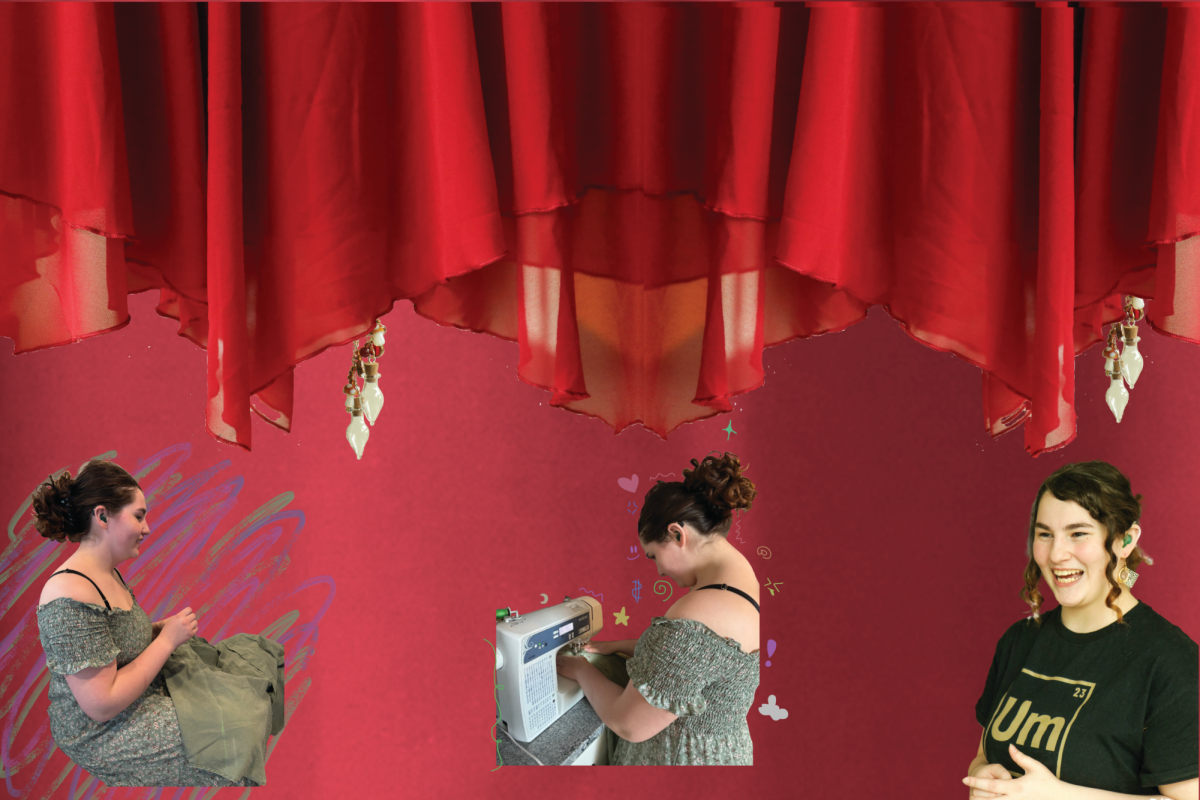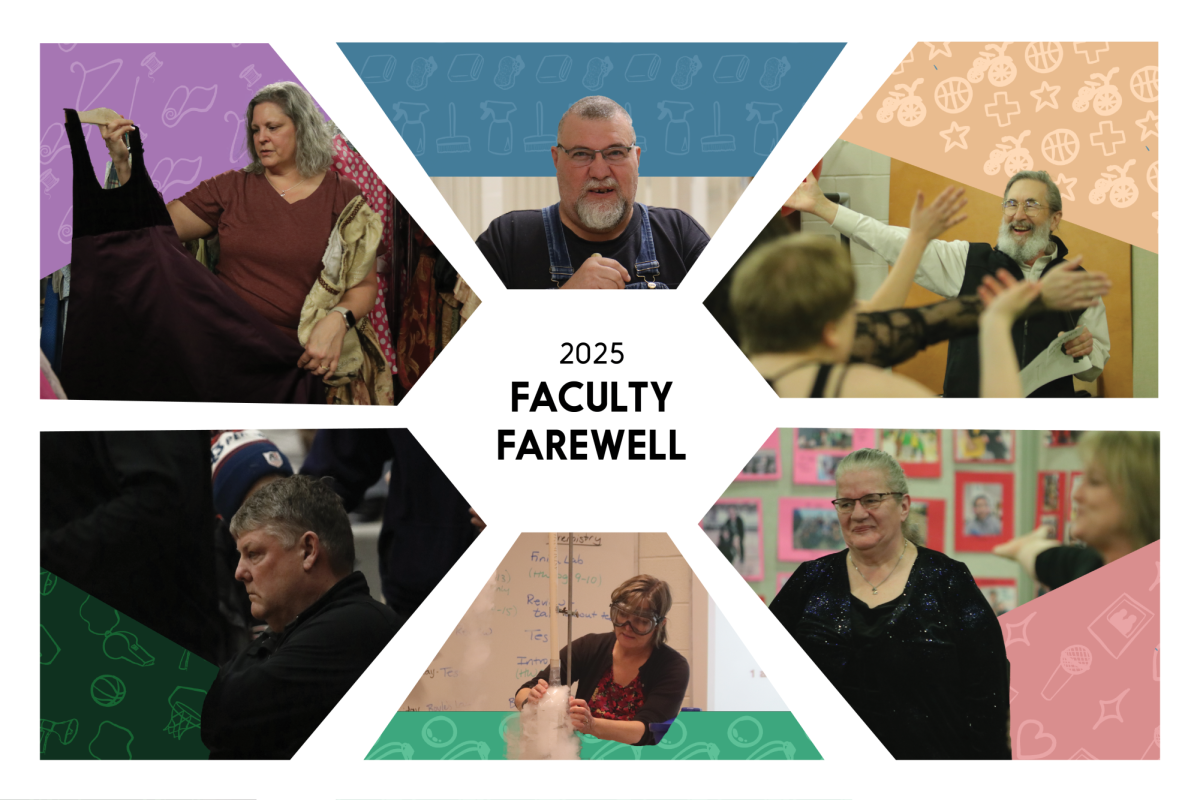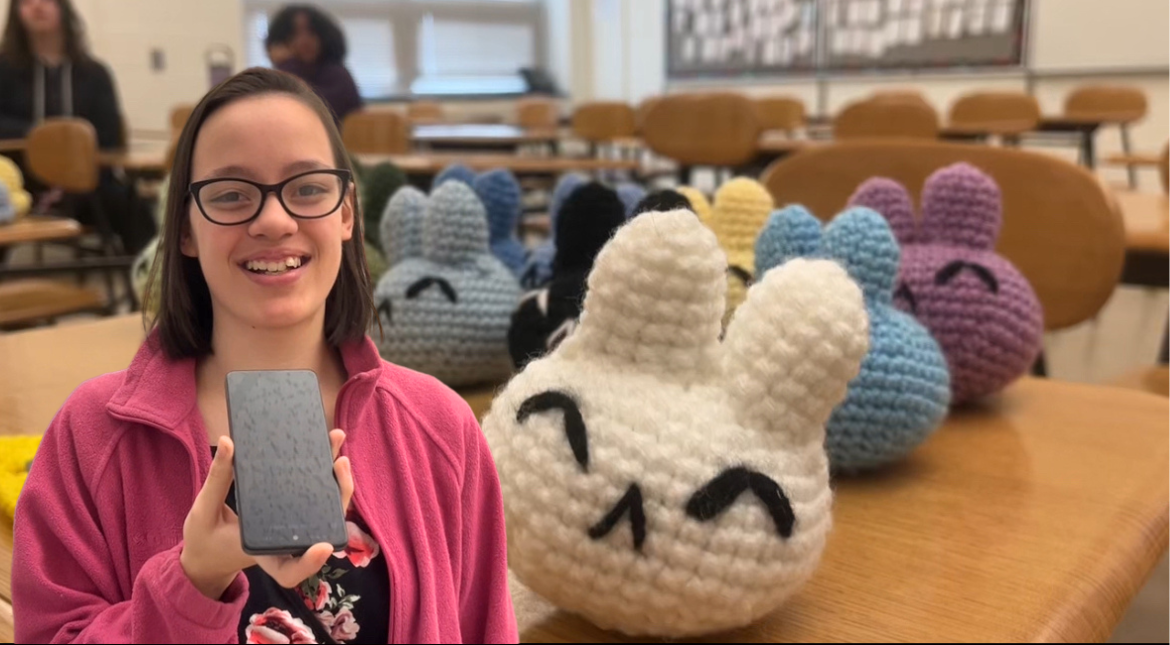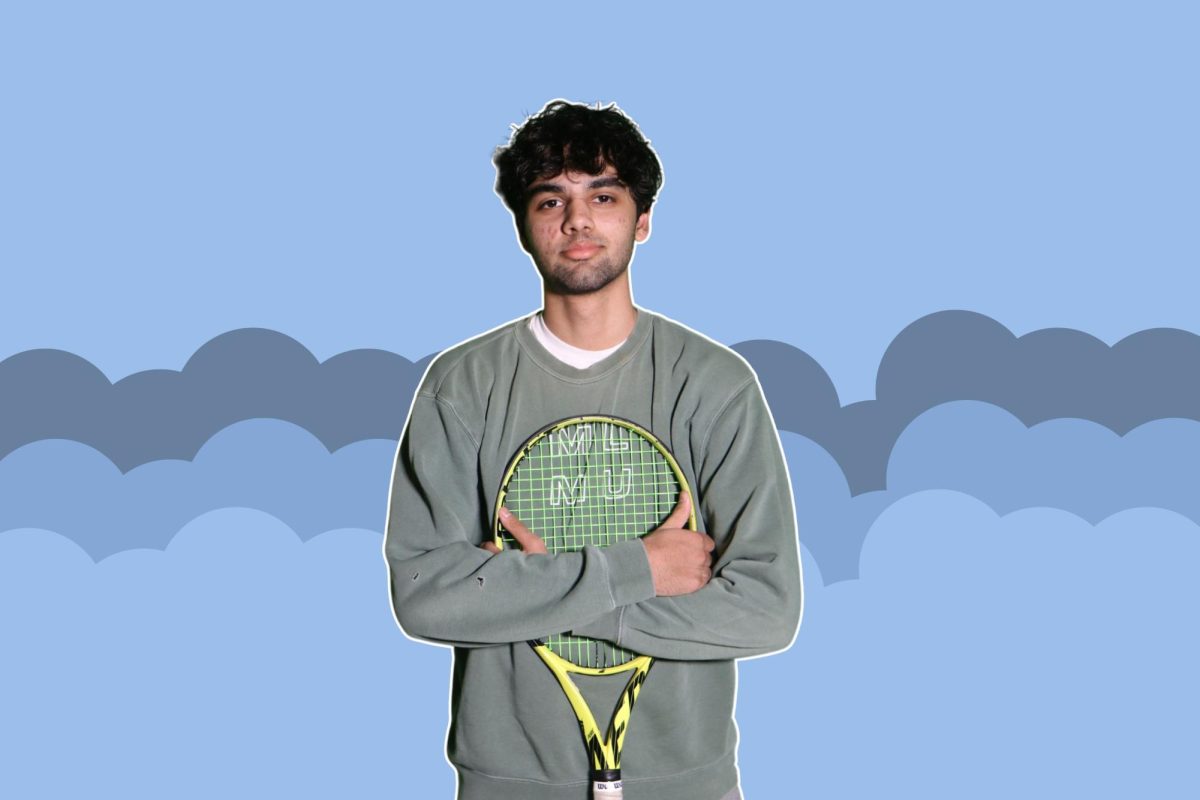When walking into James Kirpes’ room, one may encounter “party,” “shindig,” “homefun” and “cal-COOL-us” filling class discussions. These are just a few of the phrases from Kirpology, Kirpes’ very own math language. While unusual to typical students, many enrolled in Kirpes’ classes are accustomed to his unique language. Kirpology plays a special role in his classroom, and the origin of the language dates back to the beginning of his teaching career.
While attending math competitions during his first years of teaching and coaching math club, Kirpes met Des Moines Valley math teacher Jim Jephson, who inspired Kirpes’ “parties.”
“We were chatting once and I heard him say ‘I don’t give math exams, I give math parties,’ because he likes to celebrate math and celebrate his students, and he thoroughly enjoys math,” Kirpes said. “I was like, ‘I like that idea: [to] celebrate math.’”
To keep his terms consistent, Kirpes also swapped “quizzes” for “shindigs” and “homework” for “homefun.” He uses these alternative phrases to reduce students’ stress.
“I’m very aware some students have math anxiety. As soon as they hear ‘math test,’ they tense up, and that’s unfortunate, but it’s a reality. So I thought, ‘What can I do to take the edge off? Call it a math party?’ [Because] why get a kid all tense or nervous over the term that I use?”
Humor remains an integral part of Kirpes’ lessons as he often jokes with his students. One of Kirpes’ former students and current West science teacher Jeff Conner ’05 appreciates his humor and believes it’s one of the reasons Kirpes stands out.
“As somebody who was nerdy myself, growing up as a math nerd and a science nerd, I tended to think he was really funny and witty,” Conner said. “I enjoyed his sense of humor, and I enjoyed how much he loved math.”
Despite Kirpes’s current passion for teaching, he never believed he would become a math teacher in high school.
“I had an interaction with one of my friends in high school where I was trying to explain a topic to them, and apparently I did a very poor job, because my friend said, ‘You can’t teach anything.’ So I crossed ‘math teacher’ off in my brain,” Kirpes said.
However, while studying mathematics and sociology at Iowa State University in 1986, Kirpes was on the hunt for a job. He began tutoring at the university tutoring office, discovering his love for teaching in the process.
“I was pretty good at [tutoring], and I certainly enjoyed it,” Kirpes said. “I had some students who requested me from one semester to the next, so that told me I was doing okay … and junior year at Iowa State, I was like, ‘I really need to consider this math teacher thing.’”
Now, Kirpes has been at West for 26 years, teaching about 4000 students throughout his career. His courses vary from Geometry Honors to AP Calculus BC to Art of Mathematical Problem Solving. For Kirpes, teaching isn’t a job but an avocation.
“A vocation is something that you’re called to do, and for me, an avocation is the next step beyond that. I need to [teach math] to be my authentic self,” Kirpes said. “So not only am I called to do it, but I would be denying some sense of who I am if I didn’t.”
Answering his calling to teach, Kirpes strives to help students derive their own equations to success.
“I want students to be successful, and I try really hard to let them define what success is. It’s really important to me that you don’t let somebody else define for you what success is. [It’s] a great thing when I see a student having success, defined in their own way,” Kirpes said.
Conner experienced Kirpes’ passion for teaching firsthand. After taking Geometry Honors, the Art of Mathematical Problem Solving I and II and AP Calculus BC with him, Connor notes Kirpes’ exponential mathematical purpose.
“He loves math, he wants to spread it around to as many people as possible and he’s a teacher for the right reasons — he wants to educate young people about the topic that he loves. That’s why he does it,” Conner said.
In addition to spreading his joy for math, Kirpes values students’ energy and desire to learn.
“I find it very refreshing that students are better at self-advocating, and I love the fact that I can do a ‘check-in’ with a student,” Kirpes said. “When I was in school, we didn’t even have that phrase — if a teacher came up to me and said, ‘I’m checking in with you’ I’d be like, ‘No, why? I turned in my assignment.’ But I find it very refreshing that students have that ownership of themselves [now], that personal level of understanding.”
Outside of school hours, Kirpes supports students by sponsoring clubs like chess, F-Cubed and Mu Alpha Theta. Once a member of his own high school’s Mu Alpha Theta chapter — a mathematical honor society — Kirpes has now coached the West High team for 26 years. He encourages students to extend their math knowledge beyond the classroom through involvement in Mu Alpha Theta regardless of their math capabilities.
“With math, my passion is seeing students willing and wanting to take on challenges. Sometimes students come to me and they’re like, ‘I can’t do math club. I’m not good enough,’” Kirpes said. “I ask [students], ‘Do you want to learn math?’ and ‘Do you want to have some fun doing that?’ If they say ‘Yes’, then I’ll say, ‘Well then, check out math club.’”
In addition to helping students foster their interest in math, Kirpes notices that clubs also create a positive community for members.
“Whether it’s math or chess, I’ve been very pleased to see the social-emotional development of some students because they found a home,” Kirpes said. “That’s very rewarding for me, to see a student who may be in a different venue and isn’t so comfortable, but in this venue, they find a home.”
Conner was one of these students who found refuge while on the Mu Alpha Theta team.
“Like many high schoolers, I was kind of adrift in terms of my identity and trying to figure out what I was good at and what I was bad at. [I had] self-esteem issues,” Conner said. “One thing that was nice about the math team is it was a place where I felt appreciated, and I felt like I was good at something.”
Current Mu Alpha Theta member, Cade Benson ’24, has known Kirpes since seventh grade, when he began competing on West’s math team.
“Kirpes helps to make [Mu Alpha Theta] feel more laid back,” Benson said. “[He says] ‘Hey, we’re all on the same team and really here to have fun’ to take a little of the edge off of how competitive it can get sometimes.”
Alongside Kirpes’ supportive coaching, Benson also appreciates his humorous disposition.
“[Kirpes] has so many backlogs in his brain of random jokes. I remember we were coming back from a math competition in Minnesota, I was talking about the math class I was in. We were doing group theory and he had a joke about it,” Benson said. “He hadn’t touched group theory in years, yet he had a joke about it. So he’s got all that stuff stored somewhere.”
Under Kirpes’ guidance, Mu Alpha Theta has garnered many successes, winning Math League Nationals in May, while also holding the title of Math League State Champion for 19 consecutive years and winning 24 total. Kirpes accredits the teams’ success to his students.
“When I got [to West], it was so refreshing because it became [clear] to me that I had students who were better at math than I was. That was a weird feeling, and depending on how you approach it, it could be unsettling, but I found it almost liberating,” Kirpes said. “I was like, ‘I can help them and they can help me,’ and that’s true to this day. I have students who are better mathematicians than I am and that’s unbelievably awesome,” Kirpes said.
As he continues teaching at West, Kirpes hopes to keep providing students with spaces to find their own paths in life.
“[I want to] help students become their own authentic selves. I want my students to become good or better mathematicians because I’m a math teacher, but whatever their calling is, that’s really awesome to me,” Kirpes said.“I want to support students in their journey of being the best version of themselves, whatever that might be.”














